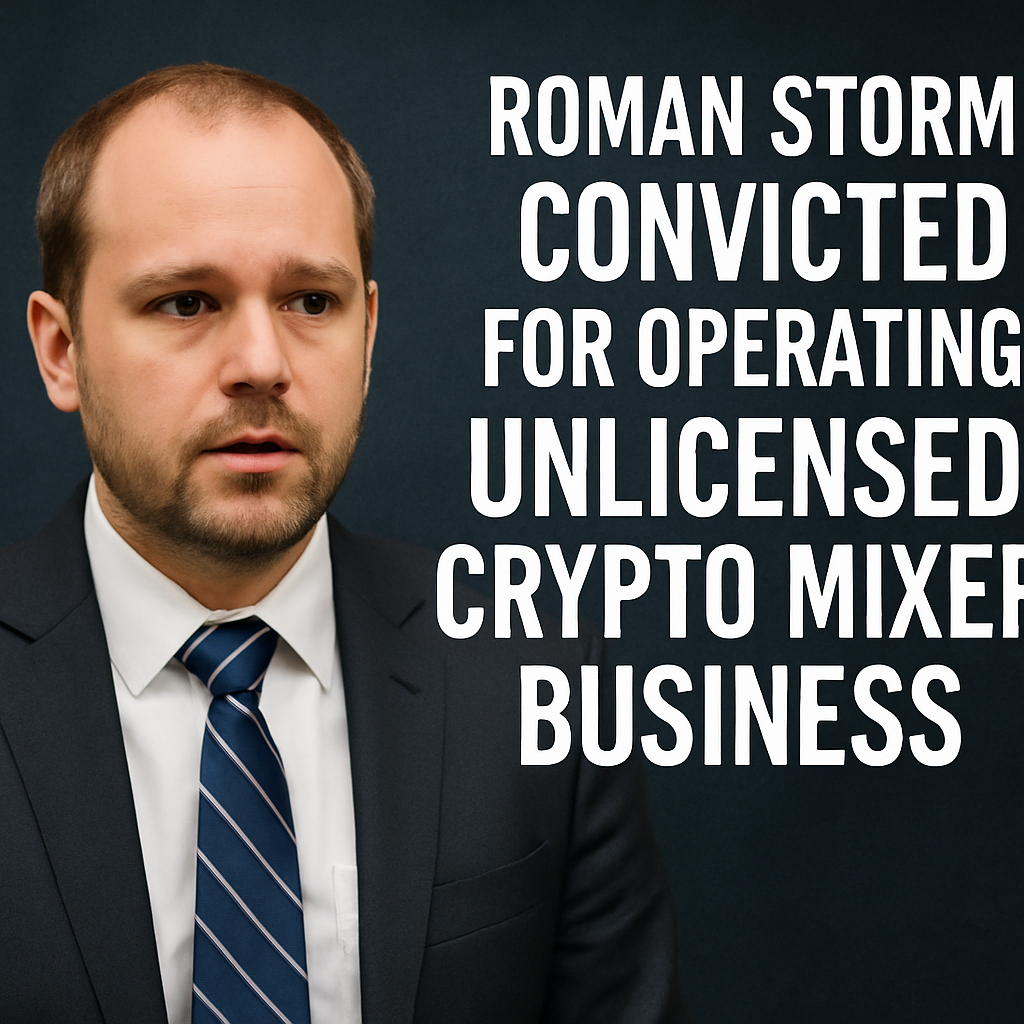NEW YORK — Roman Storm, co-founder and developer of the Tornado Cash privacy protocol, was convicted Wednesday of operating an unlicensed money transmitting business, marking a significant legal setback for cryptocurrency privacy services. The jury, after four days of deliberations following a three-week trial, found Storm guilty on the sole count related to unlicensed money transmission. The jurors were unable to reach a unanimous verdict on the more serious charges of conspiracy to commit money laundering and conspiracy to violate international sanctions, leaving those counts unresolved and subject to potential retrial.
Prosecutors presented evidence that Storm facilitated laundering of illicit proceeds through Tornado Cash, a decentralized privacy tool accused of enabling cybercriminals, including North Korea’s Lazarus Group, to wash over $1 billion. Government witnesses described on-chain transaction flows and expert testimony on the protocol’s operation. Storm’s defense countered that he was a mere software developer without intent to violate law and that privacy technology itself is not inherently criminal, emphasizing compliance measures and lack of direct instructions to illicit actors.
After the verdict, prosecutors moved to remand Storm to custody pending sentencing, arguing that his financial means and foreign origins posed a flight risk. The defense successfully argued that Storm’s deep U.S. ties—including joint custody of his young daughter—mitigated any such risk, and the judge left him on bail. Storm faces maximum penalties under the Bank Secrecy Act, with sentencing scheduled for later this year. The outcome underscores ongoing tension between innovation in decentralized finance and regulatory enforcement efforts.
Legal observers say the partial acquittal on money laundering and sanctions charges reflects jury uncertainty about extending criminal liability to software creators. Civil liberties advocates warn the case could chill privacy tool development, while regulators view the conviction as necessary to deter illicit finance. The Department of Justice is weighing whether to retry the remaining counts, a decision expected soon. The case will likely shape future enforcement against decentralized protocols and their architects.

Comments (0)